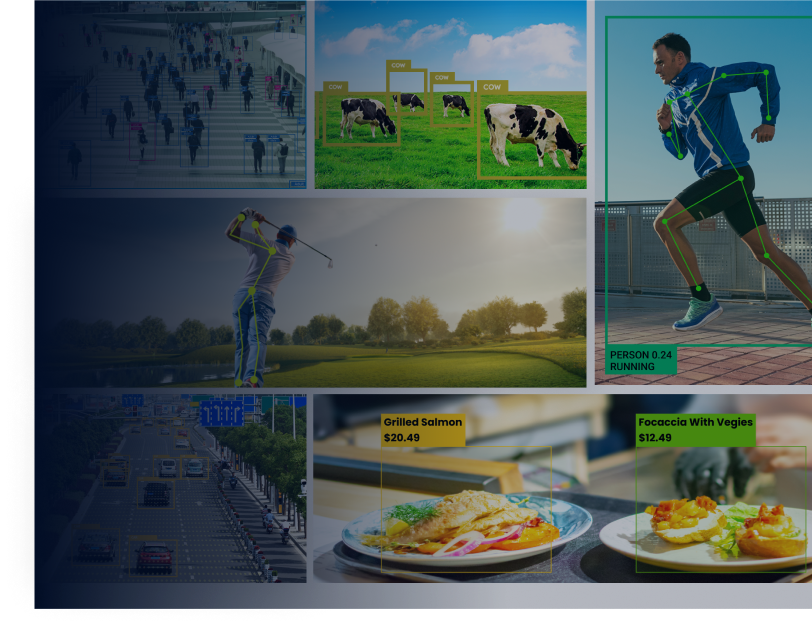Introduction
Generative AI in healthcare delivers solutions focusing on the healthcare sector’s core functions rather than adding new elements to traditional applications like chatbots and drug discovery. It incorporates cognitive virtual role-playing therapy, which improves therapeutic outcomes for individuals with social anxiety, and AI-generated surgical simulations, providing realistic training environments for surgeons without the risks of real-life procedures. This indicates that generative AI is adept at elevating standards of patient care, making healthcare more responsive, effective, and tailored to individual needs.
Here is a quick glimpse of how generative AI redefines core healthcare capabilities.
- Reduces labor costs by automating routine tasks and back-office operations.
- Generates new insights from vast amounts of medical data to enhance decision-making.
- Predicts patient outcomes and disease progression, allowing for proactive care.
- Optimizes treatment plans for chronic conditions, improving patient management.
- Personalizes medication regimens based on individual genetic and health profiles.
- Enhances the overall experience for healthcare professionals and patients.
- Supports clinical research by generating hypotheses and identifying potential drug candidates.
- Improves diagnostic accuracy through advanced image analysis and pattern recognition.
- Facilitates telemedicine by providing real-time data analysis and patient monitoring.
- Aids in the development of personalized health interventions and preventive strategies.
Continue reading this blog as we cover emerging, innovative use cases, applications, and challenges of generative AI in healthcare. Stay with us to explore how these advancements will define future patient outcomes, training methods, and care delivery models.

What is Generative AI in Healthcare?
Generative AI in healthcare employs intuitive algorithms and extensive datasets to create comprehensive solutions that enhance patient care and engagement. It enables healthcare professionals to make efficient, data-driven decisions. Consequently, diagnostics and treatment planning become more accurate, while drug discovery accelerates by analyzing clinical data and predicting outcomes. With the market for generative AI in healthcare projected to reach $21 billion by 2032, stakeholders such as insurance companies and hospital administrators are expected to incorporate generative AI into healthcare delivery and management processes increasingly.
Applications of Generative AI in Healthcare
1. Tailored Rehabilitation Regimens
Generative AI analyzes a patient’s medical history, physical condition, and ongoing progress to design customized rehabilitation plans. These plans can be continuously adjusted to optimize recovery outcomes based on real-time data.
2. Virtual and Augmented Reality
AI-driven virtual reality (VR) environments create immersive rehabilitation experiences. These setups help engage patients in their therapy, making exercises more interactive and enjoyable, which can lead to better compliance and faster recovery.
3. Tele-rehabilitation
Generative AI facilitates remote rehabilitation services, allowing patients to receive therapy from home. This approach increases accessibility for those unable to visit clinics regularly and enables healthcare providers to monitor progress remotely through video sessions and AI-powered exercises.
4. Improved Monitoring and Feedback
AI tools can track patient movements using wearable devices, providing real-time feedback on performance. This capability helps identify improper techniques or overexertion, allowing therapists to adjust exercise prescriptions accordingly.
5. Data-driven Insights for Progress Evaluation
Generative AI can identify trends and predict patient outcomes by analyzing large datasets collected during rehabilitation. This analysis supports clinicians in making informed decisions about treatment adjustments and long-term care strategies.
Generative AI Use Cases in Healthcare
These examples showcase how generative AI is applied in real healthcare settings, driving innovation and improving patient care across various domains.
1. AI-Powered Predictive Analytics for Patient Outcomes
Generative AI comprehends large data sets to predict patient outcomes, helping healthcare providers make informed decisions. For example, Mount Sinai Health System uses AI algorithms to predict which patients are at risk of readmission within 30 days after discharge. By identifying at-risk individuals, they can implement targeted interventions to improve patient care and reduce hospital readmissions.
2. Virtual Health Assistants for Chronic Disease Management
Generative AI creates virtual health assistants that support patients with chronic diseases. Babylon Health offers an AI-driven chatbot that interacts with users to monitor their symptoms, medication adherence, and lifestyle choices. By engaging patients regularly, the assistant helps improve the management of conditions like diabetes and hypertension, ensuring timely interventions when necessary.
3. Realistic Surgical Simulations for Training
Generative AI enables the development of realistic surgical simulations, determining the best training for medical professionals. Osso VR is a platform that uses AI to create immersive 3D simulations of surgical procedures. Surgeons can practice complex operations in a risk-free environment, improving their skills and confidence before performing real surgeries, leading to better patient outcomes.
4. Refined Medical Imaging and Analysis
Generative AI can augment medical imaging techniques, providing clearer insights for diagnosis. Zebra Medical Vision employs AI algorithms that analyze medical images, such as X-rays and CT scans, to identify conditions like pneumonia or cardiovascular diseases. The AI generates detailed reports highlighting critical areas, enabling radiologists to make more accurate diagnoses and treatment plans.
5. AI-Driven Personalised Nutrition Plans
Generative AI can create customized nutrition plans based on individual health data and dietary preferences. For example, NutriAI uses AI to analyze a patient’s health records, lifestyle habits, and goals to generate tailored meal plans. This approach helps patients achieve better health outcomes by ensuring their diets align with their specific health needs, such as managing obesity or diabetes.
Generative AI Challenges in Healthcare
While generative AI holds tremendous potential for transforming healthcare, it also presents significant challenges that must be addressed. Below are some critical concerns regarding the integration of AI in medical settings.
1. Patient Data Privacy and Deepfake Medical Records
The ability of generative AI to create realistic but potentially misleading health records raises serious concerns about patient data privacy. If AI systems generate false medical records or deepfake patient information, it can lead to misinformation, manipulation of patient data, and compromised care. Ensuring the integrity and authenticity of health records is crucial to maintaining trust in healthcare systems.
2. Bias in AI-Generated Treatments
Generative AI systems are only as good as the data on which they are trained. If these systems rely on biased datasets, they can replicate and even exacerbate existing healthcare disparities. For example, suppose an AI model is trained primarily on data from a specific demographic. In that case, it may not provide effective treatments or recommendations for underrepresented populations, leading to unequal access to care and poor health outcomes for certain groups.
3. Legal and Ethical Challenges
The rise of generative AI in healthcare brings forth complex legal and ethical issues, particularly concerning ownership and accountability. Questions arise around who owns AI-generated content, such as virtual medical advice or treatment plans. Additionally, if an AI system makes a mistake in diagnosis or treatment, determining liability can be problematic. Establishing clear legal frameworks is essential to navigate these challenges and ensure that patients receive safe and reliable care.
How does the FOLIO3 Generative AI Platform Transform Healthcare Workflows?
The FOLIO3 Generative AI platform in healthcare employs a quintessential approach to data analysis and ensures that no critical disease insights are overlooked. It helps healthcare providers efficiently manage patient information, accelerate administrative tasks, and improve clinical decision-making with AI-driven insights. This results in reduced operational costs, improved patient engagement, and more time for healthcare professionals to focus on their patients, ultimately leading to a more effective healthcare delivery system.
See Our Generative AI in Action: ClinicalPad Case Study on AI-Driven Clinical Documentation
Folio3 AI collaborated with a UK-based healthcare technology client to refine their clinical documentation solution, ClinicPad, by integrating AI-powered tools. Despite an existing online system, healthcare professionals (HCPs) faced inefficiencies with manual data entry, leading to incomplete records and time management challenges. Over four months, Folio3 AI revamped the platform’s UX, added conversation recording, enabled handwritten and audio note uploads, integrated image recognition via ChatGPT, and developed an AI assistant for real-time support. They also implemented PII filtering for compliance, ensuring secure data handling. This upgrade transformed documentation into a seamless, efficient process, helping HCPs save time and focus more on patient care.
Final Thoughts
As generative AI continues to evolve, we can anticipate even greater integration of AI technologies within healthcare systems around the globe. This will encompass advancements in areas such as medical image analysis, virtual health assistants, and personalized medicine.
However, the successful integration of generative AI into healthcare hinges on carefully balancing its significant benefits with the inherent risks it poses. Leaders must diligently evaluate each potential application, weighing its advantages against possible drawbacks.
Remarkably, 82% of healthcare providers have already implemented or plan to implement governance and oversight structures specifically for generative AI. By optimizing operations and enhancing patient care through generative AI, you can lead your organization into the future—contact N-iX today.


Manahil Samuel holds a Bachelor’s in Computer Science and has worked on artificial intelligence and computer vision She skillfully combines her technical expertise with digital marketing strategies, utilizing AI-driven insights for precise and impactful content. Her work embodies a distinctive fusion of technology and storytelling, exemplifying her keen grasp of contemporary AI market standards.









